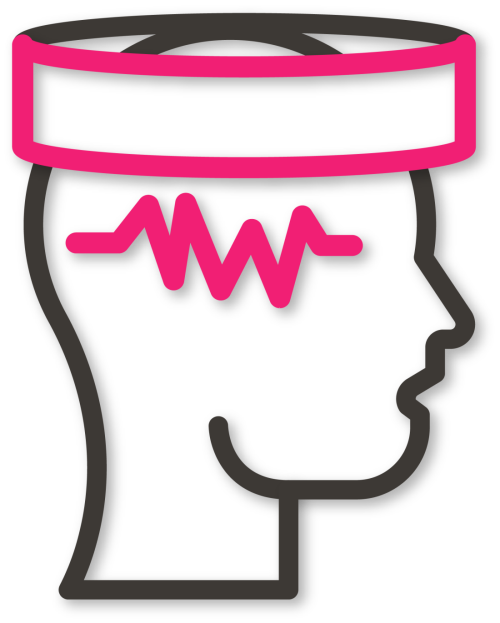
Neuroscience Surveys
Work-life balance is a key component for feelings of psychological safety at work and helps keep us happy. This is linked to the Instinctive brain system in our neuroscience model.
If you've just landed on this page, we recommend reading our introduction to brain systems and the neuroscience themes for more context. Otherwise, read on for everything you need to know about why work-life balance so important in the workplace.
For decades we’ve been living by the hustle culture. Work hard, then work harder. But when the world came to a standstill during the pandemic, so did the hustle culture. In this stillness, many began to rethink how, when and why they work. Many stopped toiling away for hours in offices, opting for remote or hybrid working. This new level of flexibility was far more attractive and now we see a greater demand for better work-life balance.

Imagine weighing scales, work on one side and life on the other. It’s the balance of these two things. When things get out of balance, such as excessive work pressure, it causes difficulties in keeping that balance in check. This can significantly impact your energy and happiness. Employers should try to best mitigate the negative impacts of work pressure that upset the balance between work and life.
Our first instinct is to survive. If we don't feel safe, we are naturally in a state of withdrawal. We don’t take any risks because our existence may be under threat. The consequence is if we're constantly in a state of stress, we're not giving our best selves and the organisation is certainly not getting the best work out of us.
Safety is always an important theme within the data at the Happiness Index. It is the survival/thrive, fight, or flight instinct. If we don't feel safe, we put a lot of time and energy into finding safety. Safety in the workplace is often around psychological safety. When people are in a good space psychologically, feeling safe and feeling a sense of freedom, they are willing to take a little bit more risk. However, if someone feels micromanaged and lacks freedom, it will negatively impact their psychological safety.
When people are engaged, working long hours and care about the work they're doing, it is viewed as a positive thing in the sense they are invested in the work. But actually, when you're working really long hours, your work encroaches on your personal life and the time you could be investing into your wellbeing. The energy you put into work is not going to be as productive or as positive. You're adding to your stress container.
When you don’t take time to invest in your wellbeing and mental health, you’re not releasing the tap that allows things out of the stress container. It will keep filling up and eventually spill over. Work-life balance helps us to manage what’s going into the container and what’s coming through the tap.
When we don't have autonomy we can blame other people, whereas when we have the opportunity to make our own choices, we can grow more. However, autonomy comes with some challenges because it means the normal boundaries are removed - and the demands of high productivity are there. When these things are put together, it can be tricky for people to take on their ownership and responsibility.
Learning how to switch on and switch off isn't an overnight solution. It’s an area that needs to be worked on constantly. The enemy is a control mentality because it suppresses human talent. It forces us to fit into a box. Figuring out how to get the balance right in a new environment in a very collaborative way, is an important debate that needs to continue.
Work-life balance ranks lowest within our platform data. This means that there's work that needs to be done around work-life balance. When purpose is incredibly high in organisations, people feel very passionate about what they do, so it's very easy to slip into another task and time slips by. It's vital people are very clear on the importance of having balance so that appropriate breaks are taken throughout the day and time is carved out for family and other aspects of people's personal lives.
We need an internal framework to refer to in order to help maintain meaning in our lives. Learn the lessons so that we can develop self-care and policies for our employees that also work for the business.
If your employees come to a roadblock, encourage them to step away for a minute. Have them go for a walk, go outside, or just go do something different. It is amazing how often giving time to organise thoughts will lead to a solution.
When we're in analysis mode, we're just digging deeper and deeper. But stepping away from work means we trigger the prefrontal cortex. It’s the big picture stuff, less down in the trenches. We need to remove the guilt around the idea that we don't appear to be working when we take time to process. We're worried about being judged, but actually, we are moving into a different level of intelligence which allows us to take a bigger picture look and come back fresh. Stepping away is a very valid brain activity.
We need a brain detox period. People need to be more systematic in how they approach switching off. Often we don't actually switch off because, in work, we face certain emotional challenges that can frustrate us - and that reverberation can carry on in our brains and our bodies for hours afterward. We are constantly processing our experiences during the day - But we need to be much smarter and healthier about the way that we do this...
Both the individual and the organisation should encourage people to understand their brains better. Everyone should have their own policy and approach to make sure they’re giving themselves the healthiest option for maintaining their own balance and growth. We've got to make sure we're not carrying the wrong sorts of thoughts and emotions into our home lives and sleep periods.
Focus on the impacts you have, not the hours you’ve pulled or the amount of time spent at a desk. Impact versus time is always really important for balance. Find what works for you, that allows you to get the best out of yourself. What kind of environment do you need for that? What resources do you need? Understand how your brain works, then you can maximise your performance. When we exercise we can train, improve and maintain over time. It's exactly the same with our brains. We just need to understand what is the best way to unlock our performance.
Work-life balance is not just a tick box that you're suddenly going to achieve or be able to provide for your employees. Balance is a constant process of adjustments and reflections, making small changes where you can.
*This is an excerpt from the Happiness and Humans Podcast with Co-founder and Chief Platform Officer Tony Latter, People and Happiness Assistant Laura Page and Head of Neuroscience Clive Hyland.

Linked to Happiness in our neuroscience methodology... learn more
The Happiness Index helps organisations measure the key employee engagement AND happiness drivers to power their people strategy.
Our unique platform offers the products, insights and tools to shine a light on your cultural health and empower management to drive thriving cultures.
Our neuroscience-based pre-built surveys measure the full employee experience - from onboarding to exit to empower and enable organisations to understand their people and create data-led action plans.
